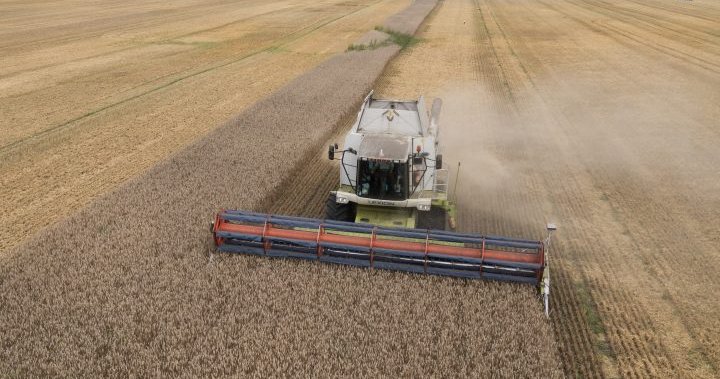
Ukrainian food exports increase while Russian fertilizer stalls, UN says
Global News
Fertilizers now are three times the price they were before the COVID-19 pandemic hit in early 2020, said U.N. trade chief Rebeca Grynspan.
Food exports from Ukraine and Russia have increased since a July 22 grain deal, but critically needed fertilizer exports from Russia are still down despite being covered by the agreement, with financing and shipping still issues, the United Nations said Tuesday.
U.N. trade chief Rebeca Grynspan, who leads the team trying to facilitate unimpeded global access to Russian food and fertilizer, said Russia reported a 12 per cent increase in food exports from June to July. But while there has been “important progress,” the U.N. is concerned about fertilizer exports needed by October and November, the latest for the northern hemisphere planting season, she said.
Fertilizers now are three times the price they were before the COVID-19 pandemic hit in early 2020, Grynspan said, adding that “the crisis of affordability that we have now will be a catastrophic crisis if we don’t solve the problem of fertilizer.”
As an example, she said the sowing season for new crops in West Africa is over and planting was down by a very high percentage because of fertilizer costs.
Grynspan told a U.N. press conference by video from Geneva that the U.N. Food and Agriculture Organization reported that food prices declined globally in August for the fifth straight month. But she expressed concern that this decrease has not been seen in domestic markets, and developing countries especially are still struggling with high food prices as well as inflation, currency devaluations and interest rate hikes.
Amir Abdulla, the United Nations coordinator for the deal to ship Ukrainian grain, said 129 fully laden ships carrying over 2.8 million tons of grain have left the three designated Ukrainian Black Sea ports for different countries.
With grain prices dropping, Abdulla said, the U.N. has seen that people who had been hoarding grain to sell at high prices are now putting it on the market in one or two countries. “Hopefully that will bring some of those local prices down” he said by video from Istanbul.
On July 22, Russia and Ukraine signed separate agreements with Turkey and the United Nations clearing the way for the export of desperately needed grain and fertilizer, ending a wartime standoff that threatened food security around the globe. The deal expires in November after 120 days and can be renewed.
